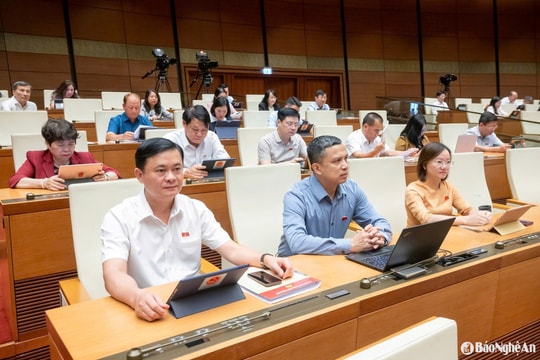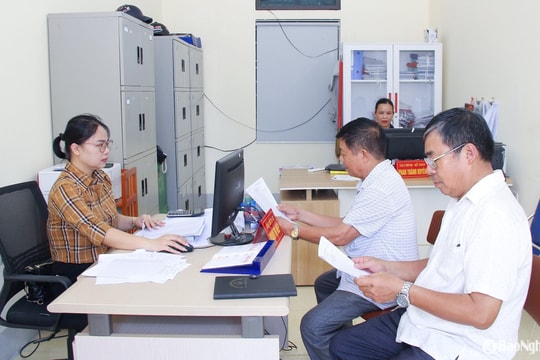Nghe An National Assembly delegation contributed many valid opinions on merging provinces and establishing an International Financial Center.
On the morning of June 11, after the plenary session in the hall, the National Assembly held discussions in groups. The National Assembly delegation from Nghe An province discussed in groups with the delegations from Hai Phong city and Ba Ria - Vung Tau province.
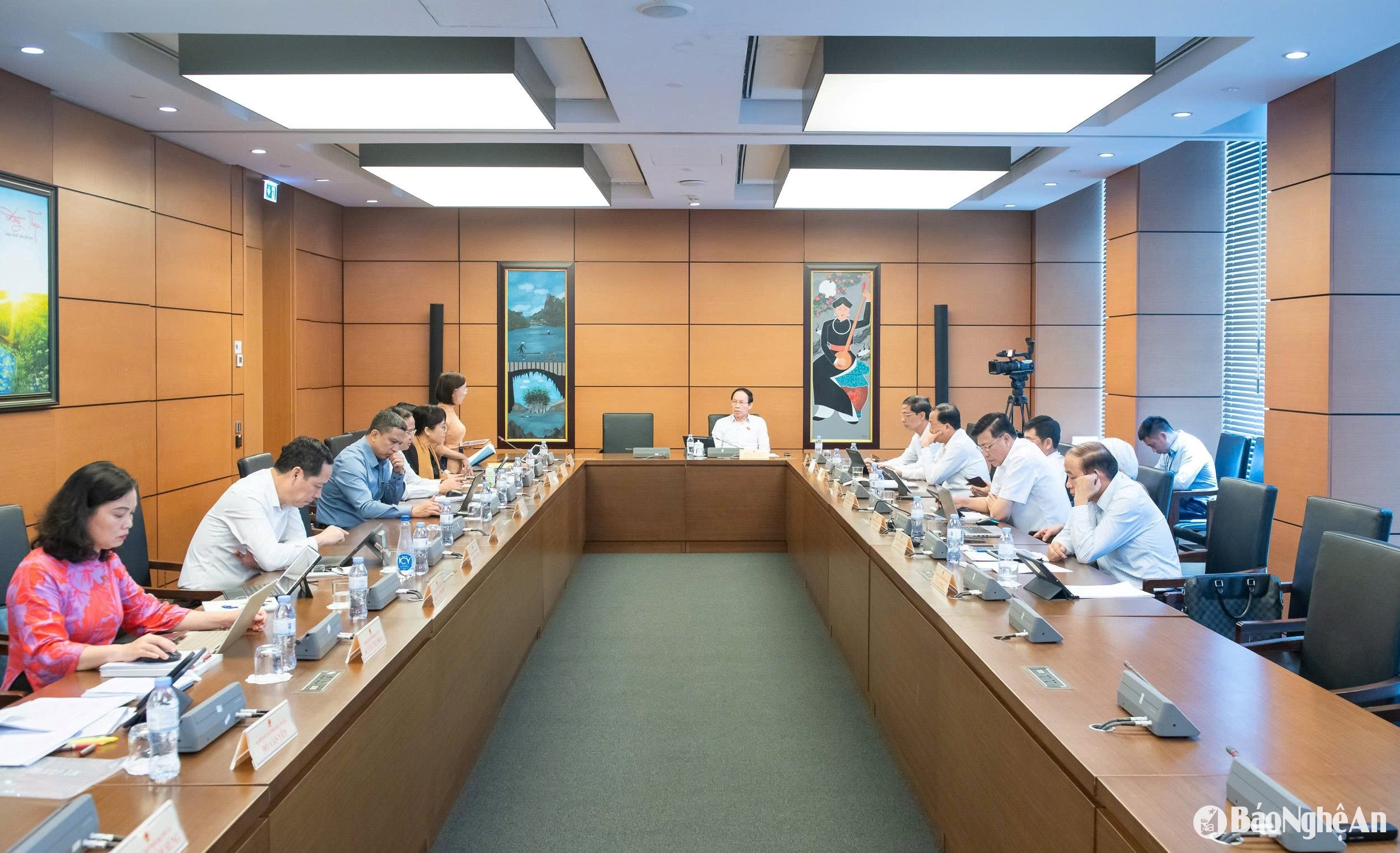
The discussion focused on the arrangement of provincial-level administrative units in 2025; the draft Resolution of the National Assembly on the International Financial Center in Vietnam; and the draft Law on amending and supplementing a number of articles of 11 laws in the military and defense fields.
Proposal to remove old boundary description in the Resolution on province merger
Speaking at the discussion, delegate Thai Thi An Chung - Member of the Provincial Party Executive Committee, Deputy Head of the National Assembly Delegation of Nghe An province gave many specific comments on the Draft Resolution on the arrangement of provincial-level administrative units.
The first comment raised by delegate Thai Thi An Chung was about the name of the draft. Currently, the name is "Resolution on the arrangement of provincial-level administrative units in 2025". According to her, such naming can easily cause misunderstandings that all 63 provinces and centrally-run cities are subject to arrangement, while the content of the Resolution only mentions 52 merged provinces, while the 11 provinces that maintain their current status are not clearly stated.
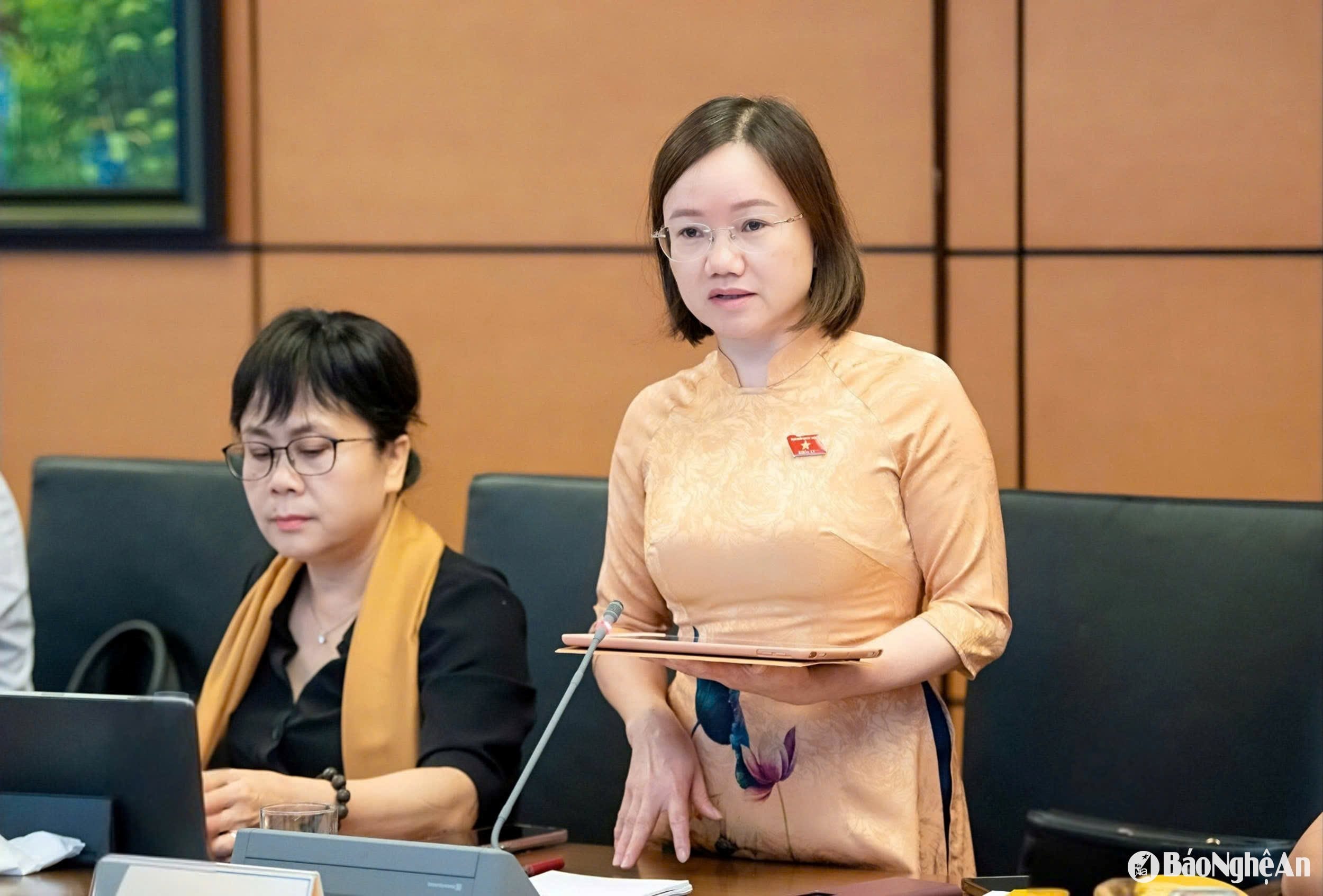
The delegate from Nghe An proposed: If the name is kept as concise as in the draft, it is necessary to add a provision on keeping the remaining 11 provincial-level administrative units intact to ensure comprehensiveness. On the contrary, if the units are not mentioned, the name of the Resolution should be adjusted to "Resolution on merging provincial-level administrative units"; at the same time, for both naming options, according to the delegate, the phrase "2025" should be removed.
The delegate said that the description of the boundaries of the old administrative units included in the draft was unnecessary, because the implementation would be based on the new administrative boundaries after the merger. She proposed referring to the previous practice, such as in 1975, when the National Assembly decided to merge provinces, the Resolution only briefly stated "merging province A and province B into a new province named..." without providing details on population and area. The specific contents were assigned to the Government for guidance and implementation.
Regarding the effective date of the Resolution, delegates suggested that it should be stipulated to take effect from the date of approval by the National Assembly instead of from July 1, 2025 as in the draft. Stipulating the effective date immediately after approval would be more timely, consistent with the nature of a decision to reorganize an administrative unit that has a major impact on the entire political system.
Regarding the implementation organization, delegates proposed to expand the subjects responsible for implementation, not only limited to the Government, People's Councils and People's Committees of provinces and cities, but also need to supplement the responsibilities of the National Assembly Standing Committee, the Supreme People's Court and the Supreme People's Procuracy, because the arrangement of provincial-level administrative units also entails adjustments to the organization, personnel of provincial-level People's Councils, the Court system and the Procuracy in the merged localities.
Global minimum tax and the problem of attracting leading financial institutions
Speaking at the discussion, delegate Nguyen Van Chi - Deputy Chairman of the National Assembly's Economic and Financial Committee contributed many contents to the National Assembly's draft Resolution on the International Financial Center (IFC) in Vietnam.
The delegate from Nghe An commented that the draft initially classified two main groups of entities operating in the international financial market, including: the group of financial institutions and the group of organizations providing support services. However, in addition to the two groups mentioned above, the draft also added the group of "non-financial organizations and other entities as prescribed by the Government". Therefore, the delegate suggested that the drafting agency should clarify the meaning of "non-financial organizations".
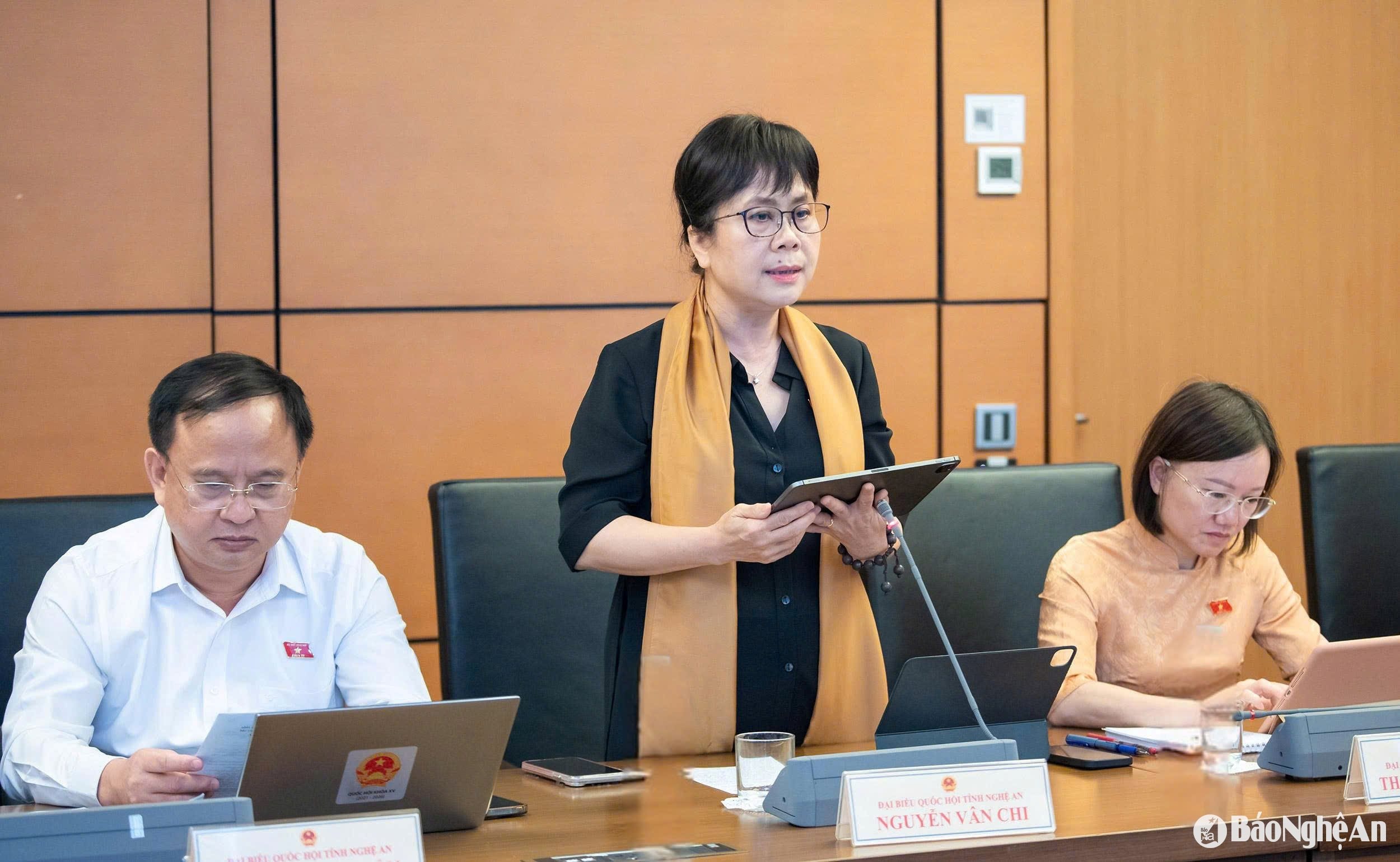
Regarding the scope of application and specific mechanisms, the draft clearly states that the specific mechanisms will be applied within the administrative geographical area of the International Financial Center. However, delegates suggested that it is necessary to clarify: will the specific mechanisms be applied according to the location of the headquarters or according to the scope of the entity's operations? Because financial institutions can be headquartered at the International Financial Center, but provide services to customers in many areas, including internationally, based on digital platforms, across borders.
The draft stipulates three operating principles: efficiency, transparency, integrity; professionalism in service provision and application of international standards. However, according to delegate Nguyen Van Chi, it is necessary to add principles on the responsibilities of members, especially the responsibility to ensure customer rights and the responsibility to protect financial security and safety.
Regarding the mechanism for monitoring and preventing financial risks, the delegate from Nghe An commented: The draft initially stipulates the state management agency in the international financial market, including the functions of inspection, examination, supervision, and handling of violations. However, the mechanism for risk warning and monitoring of systemic risks in the digital environment, where data and online transactions are central, has not yet been clearly demonstrated.
In particular, regarding the incentive mechanism to attract the world's leading financial institutions, especially those in the Fortune Global 500 list, to build an international financial center of regional and international stature, delegates analyzed the current difficulty is that many corporations in this list have revenues subject to the global minimum tax regulation (GloBE), with a minimum tax rate of 15%.
Meanwhile, the draft currently stipulates many tax incentives that exceed the normal framework, even higher than the incentives under the Law on Corporate Income Tax. However, these incentives will not have much practical effect if enterprises still have to pay a minimum additional tax of 15%, according to Resolution 107/2023/QH15 on global minimum tax. Therefore, careful calculation is needed to ensure that the incentive mechanism is both consistent with international obligations and has a real attraction effect.
In addition, delegate Nguyen Van Chi also contributed many contents to perfect the regulations on the rights and obligations of members in the International Trade Center, when the Resolution takes effect.
Law amendmentmilitary and defenseto ensure consistency with the Constitution
Major General Tran Duc Thuan - National Assembly Deputy and full-time member of the National Assembly's Committee on National Defense, Security and Foreign Affairs also discussed some additional contents of the draft Law amending and supplementing a number of articles of 11 laws in the military and defense fields from the perspective of an inspection agency.
According to him, the content of this amendment and supplement focuses on institutionalizing the Party's policy on streamlining the organizational apparatus, especially the implementation of the 2-level local government model. At the same time, the draft Law also ensures consistency and unity with the Constitution and related laws.
Some provisions have been amended to remove practical obstacles that have been tested and proven to be necessary. Regarding other contents that still have different opinions or are not eligible for amendment at this time, the drafting agency has accepted and explained specifically according to the direction of the National Assembly Standing Committee...
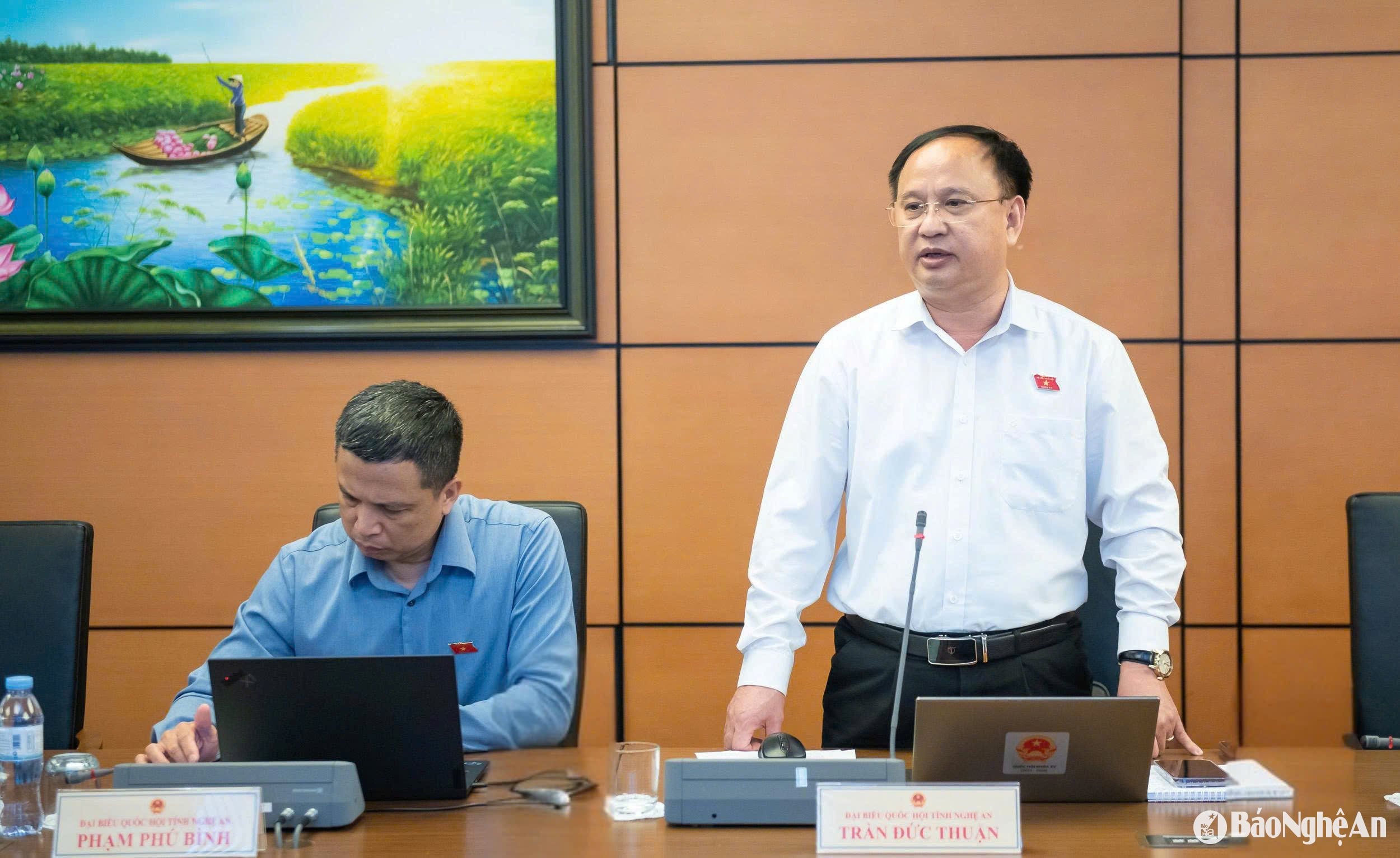
Regarding the draft Resolution of the National Assembly related to the arrangement of provincial-level administrative units, General Thuan agreed with the opinion of delegate Thai Thi An Chung on re-studying the names, and at the same time suggested that the Government and localities continue to strengthen information, propaganda, explanation, and mobilization work among the people, creating a higher consensus in society.
Regarding the Resolution on establishing the Vietnam International Financial Center, he said: According to a survey, there are currently about 120 countries in the world that have established an international financial center, of which only about 10 - 15 centers have global influence, the rest mainly serve within the region.
He said that although Vietnam is a latecomer, it also has many advantages, especially being able to learn lessons, both successes and failures, from the countries that have gone before. Therefore, the delegate from Nghe An suggested that the Government continue to complete policy impact assessment reports, not only stopping at the advantages but also needing to carefully analyze potential risks such as: Risk of money laundering, tax evasion, financial market manipulation, etc.
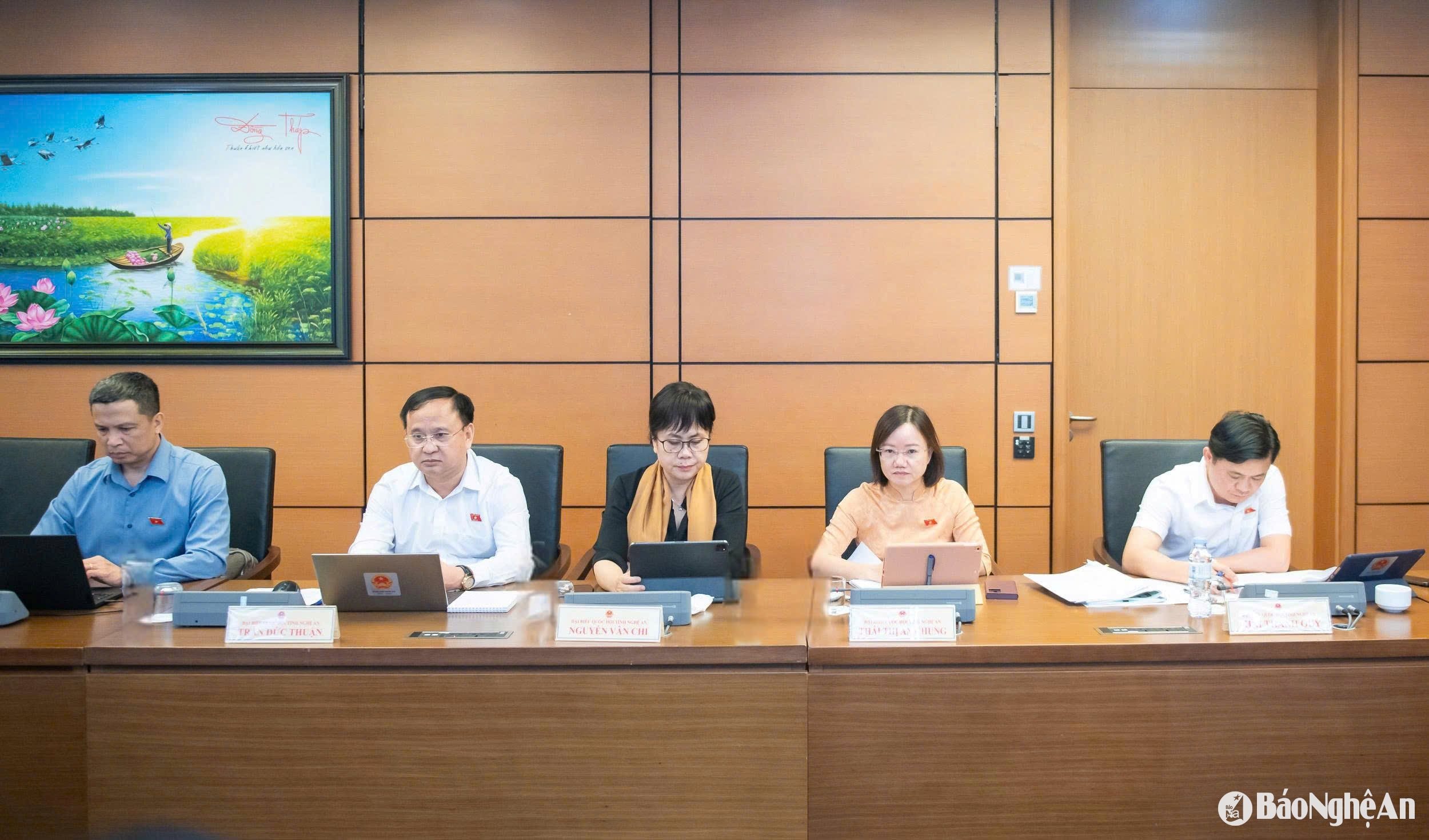
He also suggested that it is necessary to build a systematic training program right now to prepare human resources for the operation of the arbitral tribunal; as well as prepare a team of professional financial arbitrators with deep understanding of international law, to undertake the resolution of financial disputes which are often very complicated, requiring high technical and experience requirements.

